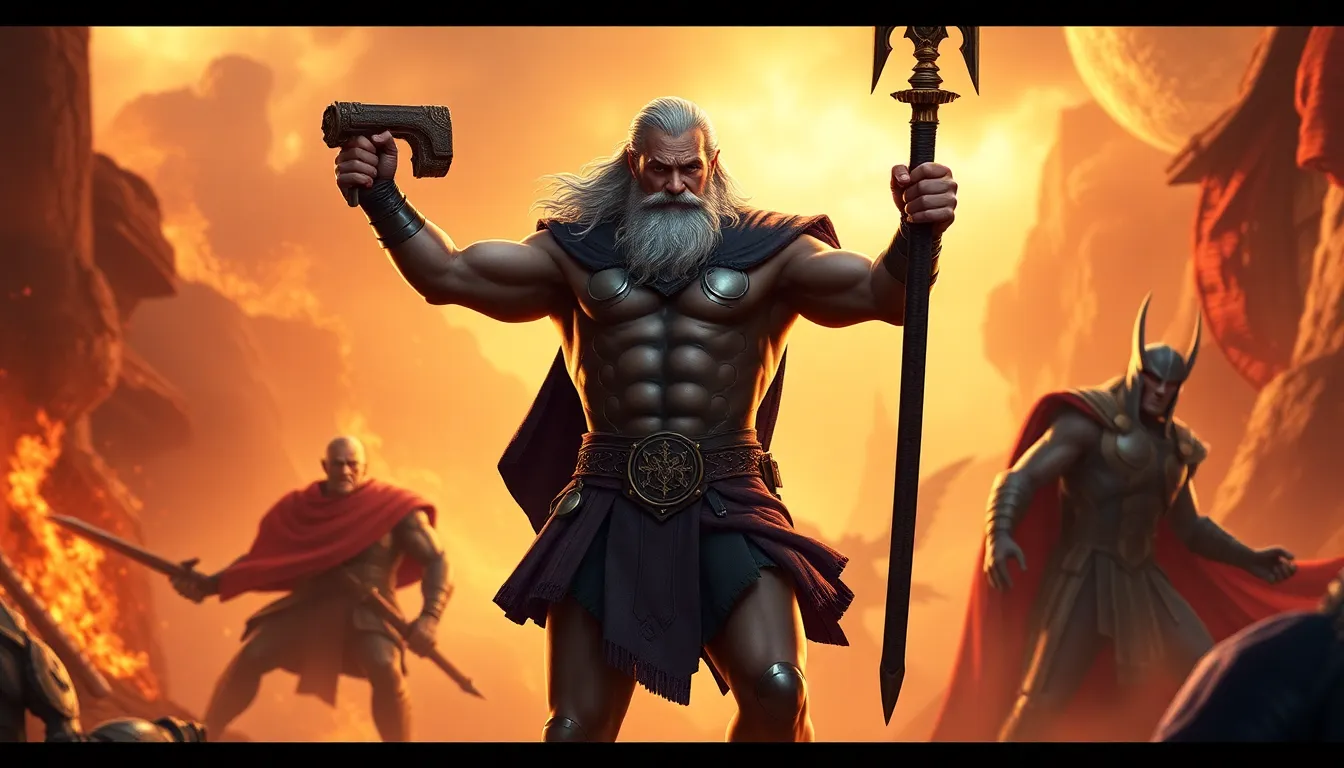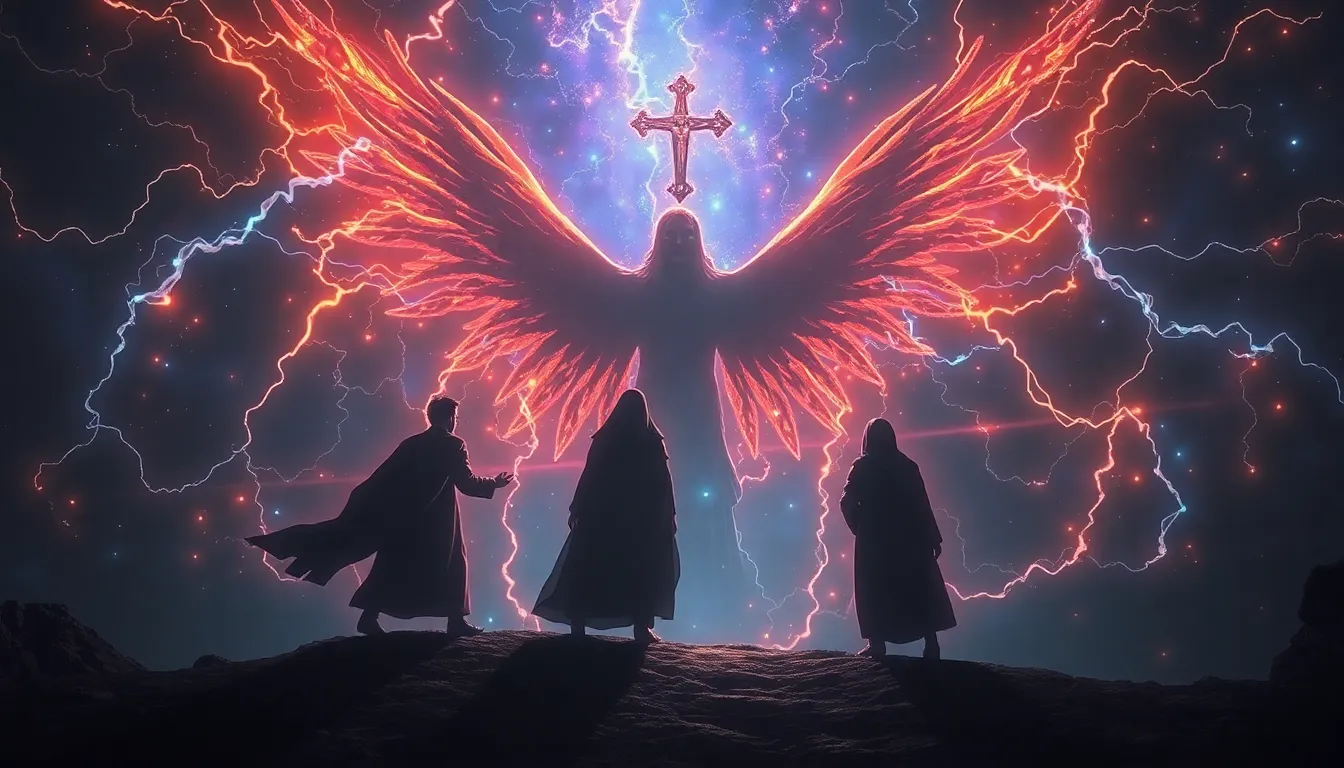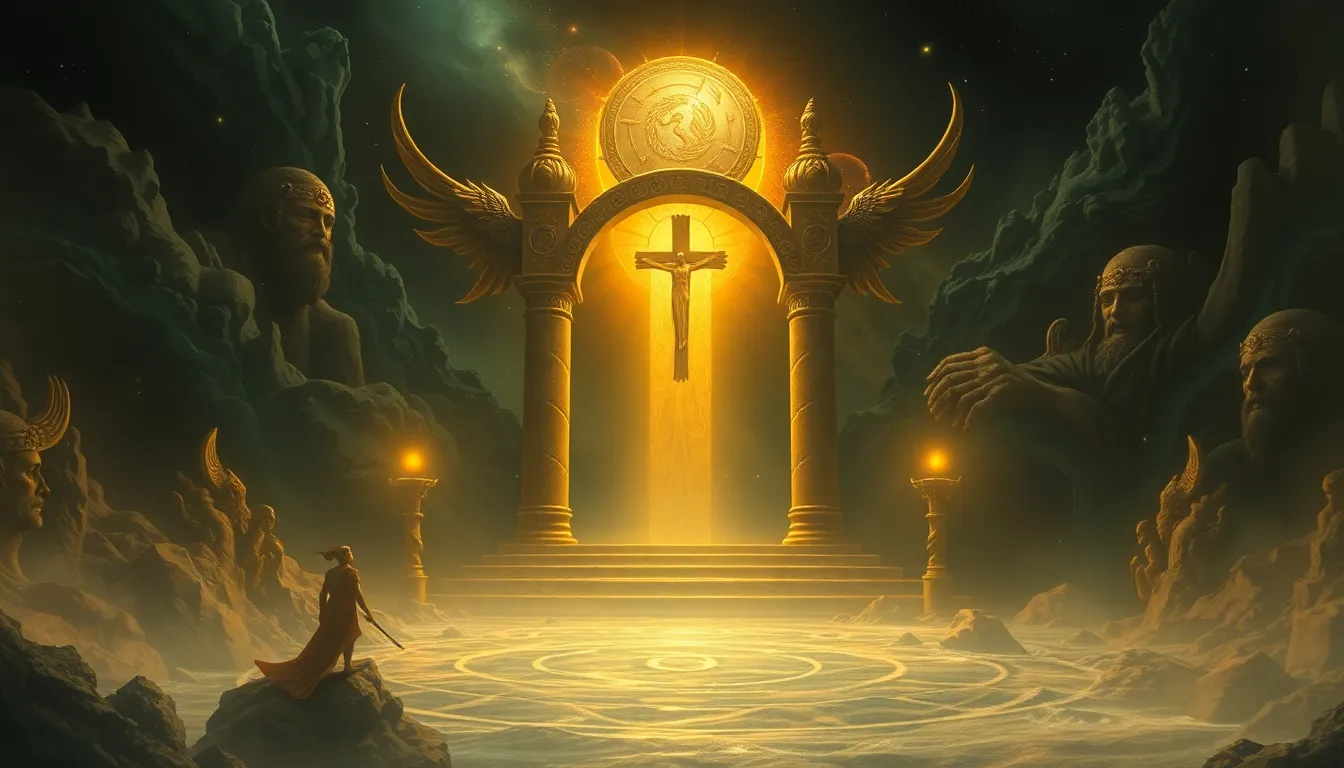From Hercules to Thor: 7 Quests That Defined Heroes
Introduction: The Evolution of Heroic Quests
Throughout history, myths and legends have showcased heroes who embark on transformative journeys. These quests have transcended cultures, from ancient Greece to Norse mythology, each revealing the values and aspirations of the societies that birthed them. Heroic quests often serve as metaphors for personal growth, moral dilemmas, and the universal struggle against adversity.
The significance of these quests lies not only in their adventurous narratives but also in their ability to define heroism. They illustrate the qualities that society admires: courage, resilience, and integrity. This article explores seven iconic quests that have shaped the archetype of the hero across various cultures.
Hercules: The Twelve Labors and the Nature of Redemption
One of the most enduring figures in mythology, Hercules, also known as Heracles, was tasked with completing twelve daunting labors as a penance for a crime he committed under the influence of madness. These labors include:
- Slaying the Nemean Lion
- Slaying the nine-headed Lernaean Hydra
- Capturing the Golden Hind of Artemis
- Capturing the Erymanthian Boar
- Cleaning the Augean stables in a single day
- Slaying the Stymphalian Birds
- Capturing the Cretan Bull
- Stealing the Mares of Diomedes
- Obtaining the Girdle of Hippolyta
- Stealing the Cattle of Geryon
- Fetching the Apples of the Hesperides
- Capturing Cerberus, the three-headed dog
The themes of redemption, strength, and perseverance are central to Hercules’ narrative. Each labor not only showcases his physical prowess but also his growth as a character, emphasizing that true heroism is often born from personal struggle and redemption.
Gilgamesh: The Quest for Immortality
The Epic of Gilgamesh is one of the oldest known literary works, chronicling the adventures of Gilgamesh, the king of Uruk. His quest for immortality begins after the death of his close friend Enkidu, prompting him to seek out Utnapishtim, the immortal flood survivor. The epic highlights key themes such as:
- The value of friendship
- The inevitability of death
- The pursuit of knowledge
Through his journey, Gilgamesh learns that immortality is reserved for the gods and that the true essence of life lies in human experiences and relationships, making his quest a profound exploration of mortality and legacy.
Odysseus: The Journey Home in The Odyssey
Odysseus, the clever king of Ithaca, faces numerous challenges on his long journey home from the Trojan War. His odyssey is marked by encounters with mythical creatures and divine beings, including:
- The Cyclops Polyphemus
- The Sirens
- The witch Circe
- The Underworld
The themes of cunning, loyalty, and the hero’s journey resonate throughout Odysseus’ tale. His intelligence and resourcefulness are as critical to his success as his physical strength, illustrating that heroism often involves wit and wisdom in navigating life’s challenges.
King Arthur: The Quest for the Holy Grail
In Arthurian legend, the quest for the Holy Grail represents the ultimate spiritual pursuit for King Arthur and his Knights of the Round Table. The Grail is often seen as a symbol of purity and divine grace. The quest serves as a backdrop for exploring themes such as:
- The search for inner truth
- The nature of heroism and sacrifice
- The importance of chivalry and honor
The Grail Quest challenges the knights to confront their own flaws and aspirations, underscoring the idea that true heroism is not merely about physical prowess but also about moral integrity and spiritual fulfillment.
Beowulf: The Battle Against Grendel and the Dragon
Beowulf, the legendary hero of the Anglo-Saxon epic, showcases the archetypal battle against evil through his encounters with Grendel, Grendel’s mother, and a dragon in his later years. Beowulf’s feats include:
- Defeating Grendel with his bare hands
- Slaying Grendel’s mother in her underwater lair
- Fighting a dragon to protect his kingdom in his old age
The themes of bravery, loyalty, and the inevitability of death permeate Beowulf’s story. His willingness to face formidable foes, even in his twilight years, exemplifies the warrior ethos and the tragic beauty of heroism in the face of mortality.
Theseus: The Labyrinth and the Minotaur
Theseus, the heroic figure of Athenian mythology, is best known for his journey into the labyrinth to slay the Minotaur. This quest involves not only physical bravery but also intelligence, as Theseus navigates the complex maze designed by Daedalus. Key themes include:
- Courage in the face of fear
- The use of cleverness to overcome obstacles
- The triumph of good over evil
Theseus’ victory over the Minotaur symbolizes the struggle against personal and societal monsters, reflecting the hero’s role as a protector and innovator within his community.
Thor: The Quest for the Lost Hammer
In Norse mythology, Thor, the god of thunder, embarks on a quest to retrieve his stolen hammer, Mjölnir. This adventure involves disguises, battles with giants, and clever planning. Key elements of Thor’s quest include:
- The importance of loyalty to the gods
- The fight against chaos and disorder
- The demonstration of physical and moral strength
Thor’s journey emphasizes the themes of strength and loyalty, showcasing the heroic ideal in Norse culture where the battle against chaos is a constant concern.
Comparative Analysis: Common Themes in Heroic Quests
Across these diverse narratives, several common themes emerge that highlight the essence of heroism:
- Bravery: Heroes consistently face daunting challenges that test their courage.
- Sacrifice: Many quests involve personal sacrifice for the greater good, reflecting moral and ethical values.
- Moral Lessons: Each quest imparts important lessons about life, leadership, and the human condition.
These quests not only entertain but also serve as reflections of societal values, offering insights into the human experience and the qualities admired by different cultures.
Conclusion: The Enduring Legacy of Heroic Quests
The quests of Hercules, Gilgamesh, Odysseus, King Arthur, Beowulf, Theseus, and Thor continue to resonate in modern culture and literature. They shape our understanding of heroism, revealing that the journey is as significant as the destination. In today’s world, where challenges and moral dilemmas remain prevalent, these stories remind us of the timeless qualities that define true heroes.
As we navigate our own quests in life, the lessons from these legendary figures inspire us to strive for courage, integrity, and resilience in the face of adversity. The enduring legacy of these heroic quests is a testament to the power of storytelling in shaping human values and aspirations.



